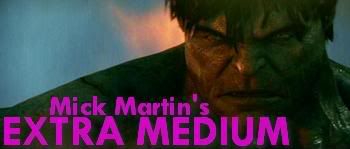
Believe it or not, a comparison between Ang Lee's Hulk and Louis Leterrier's Incredible Hulk is often one of the first conversations I have with people. It's not on purpose, I don't ask for it, but sometimes it's inevitable. I get introduced to someone, the introducer mentions my interest in comics and my sometimes obsessive attachment to the Hulk, and the person to whom I'm being introduced will usually say something along the lines of "Oh yeah, I liked that last movie with Ed Norton. That one before it though, MAN, did that suck." I don't agree, but I'll usually nod and say something like "Yeah, it did drag in parts."
I think Lee's Hulk gets a bad rap. It's a deeply flawed film to be certain, but it doesn't deserve the space it's enjoyed on most viewers' mental scorecards -- somewhere around Batman and Robin and Elektra. Sure. I can't deny it. I'm a huge fan of the character so there's definitely bias. But I still have problems with the film. They just seem to be different from the problems everyone else has with it.
Most haters of Lee's film mention the computer-generated Hulk right off the bat, and my response to their criticisms makes me feel very old. All I can think is, "What the hell did you expect?" Yes. You're right. The giant green monster looked like it wasn't real. I guess as someone who was just barely old enough to see the first Star Wars film, I'm used to giving the filmmakers a break when it comes to bringing fantastic creatures to life. Considering the possible alternatives -- a muscle man in green paint or a "Hulk suit" like the Thing suit Michael Chiklis endured two years later in Fantastic Four -- I didn't think I was straining my disbelief-suspension muscles nearly as much as I might have otherwise. Lee's Hulk never fooled me into thinking he was real, and yeah he could've been better, but he could've been worse too. I think, more than anything, we were all spoiled by The Lord of the Rings. Don't get me wrong. The creators of those films deserved all of the accolades they got when it came to the special effects, but let's not forget something fairly important. Jackson and co. brought us stunningly rendered fantasy creatures living in a fantasy world. Lee's Hulk, on the other hand, is a creature of the fantastic set against the backdrop of the real world. There was no way he was going to look like anything but a cartoon.
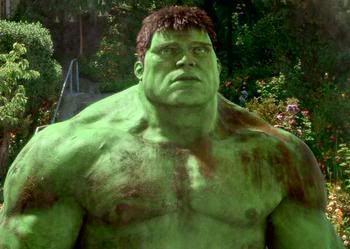
Leterrier's Hulk is certainly an improvement, mainly because of lessons learned from Lee's film. To make him look more realistic, Leterrier shrinks him, both making him shorter and a bit more lean and sinewy. His Hulk is also a much darker shade of green and it helps to minimize the cartoon-y contrast that helped damn Ang Lee's version. But I'd be curious to see what Leterrier and co. would've come up with if they didn't have Lee's version from which to learn. The Hulk of Incredible Hulk is certainly better and, physically, more believable. But he's still a computer puppet in the real world, and it shows.
The place where both films unquestioningly pale in comparison to LotR's Gollum is in the inability of either Lee's or Leterrier's computer-generated Hulks to convey a full range of emotions. You can't fall back on the fantasy/real contrast excuse here. The movie Hulks of both 2003 and 2008 have exactly three different kinds of facial expressions -- anger/pain, dull/expressionless, and what I call the Betty Face. It's just a slight variation of the dull/expressionless face that looks just a little more pathetic, like a monkey about to fall asleep, to convey that Betty is nearby.
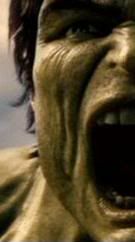 Incredible Hulk, I think, also got the sound of the Hulk in a way that Hulk just didn't. I remember, maybe 10 years ago, I wanted to put together a desktop theme for the Hulk, complete with some kind of sound that would play whenever I booted up my PC. I tried different soundbites from the '90s cartoon, the opening theme from the '70s show, and finally settled on something that sounded like the Hulk I imagined even though it wasn't from any media involved with the Hulk franchise - the sound of the T-Rex roaring in Jurassic Park. The Hulk should sound big - bigger than he actually is. But the green goliath we got in Hulk hardly even sounded like a particularly loud person. He snarls, grunts, and growls, but he sounds like a small, choked animal. In Incredible Hulk, though, I have to say, they really got it right, particularly during the few instances when he speaks, like when he roars from the shadows "Leave me alone" or his "Hulk smash" towards the end.
Incredible Hulk, I think, also got the sound of the Hulk in a way that Hulk just didn't. I remember, maybe 10 years ago, I wanted to put together a desktop theme for the Hulk, complete with some kind of sound that would play whenever I booted up my PC. I tried different soundbites from the '90s cartoon, the opening theme from the '70s show, and finally settled on something that sounded like the Hulk I imagined even though it wasn't from any media involved with the Hulk franchise - the sound of the T-Rex roaring in Jurassic Park. The Hulk should sound big - bigger than he actually is. But the green goliath we got in Hulk hardly even sounded like a particularly loud person. He snarls, grunts, and growls, but he sounds like a small, choked animal. In Incredible Hulk, though, I have to say, they really got it right, particularly during the few instances when he speaks, like when he roars from the shadows "Leave me alone" or his "Hulk smash" towards the end. Computer puppetry aside, visually there are some truly stunning moments in Hulk. To go along with the the film's message of interconnection, Lee blends wildly different settings seamlessly. One of the things that impresses me the most about his ingenuity here is that, in spite of using a plot that necessitated jettisoning quite a bit of the source material, he pays homage to the original comic visually, and in ways that make it seem quite a bit more than mere homage. They almost make it seem like metafiction.
For example, in the origin story Bill Mantlo added in Incredible Hulk #312, a story that laid much of the groundwork for Peter David's historic run on the book, as a child Bruce Banner watches his mother endure physical abuse at the hands of his father until he finally beats her to death. This is one of the most powerful and important stories ever told in the comic, because it introduces the notion that, at least in some sense, the gamma bomb blast didn't create the Hulk so much as set loose what had already been created by emotional trauma. This is presented differently in the film. There is no recurring abuse in the film, but Banner's father still kills his mother. Lee merges the murder scene with one of the discarded aspects of the original comic - the gamma bomb blast. Earlier in the film we see that Bruce's crazed father caused a meltdown at the military base where he was stationed, and in the murder flashback we see that his mother died the very moment the base exploded in a green mushroom cloud. After being stabbed, Bruce's mother pushes her way out of her house, crawls across the ground, and finally reaches towards the sky at the very moment the green of the gamma blast flashes across the desert. As a Hulk fan, it's a moment that's absolutely heartbreaking. And it unquestionably beats homages like putting file folders on computer screens named after past X-Men storylines.
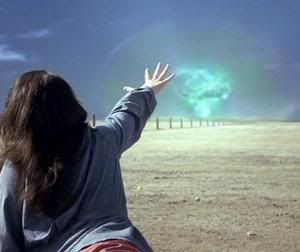
Unfortunately, there's some bad here too. Lee tries a lot of visual tricks in Hulk, and they don't all work. In particular, his use of comic-book-panel-like splits largely comes off as gimmicky: something that might have been novel if Hulk had been the very first film to be based off a comic. I want to think it was more than a cheap gimmick, but there are a lot of instances in which I genuinely don't get what he's trying to convey. And in other cases, I get what he's doing, but it just doesn't work. In a lot of cases, like when he splits the screen to show two different points-of-view of the same conversation, it looks like a cheesy long distance phone commercial. In some, it just seems useless. For example, after the military captures Bruce Banner, we watch a bunch of helicopters transporting him across the desert. Lee uses his panels to show us four different points-of-view of the same helicopters doing the same thing and I can't even really say I know what the point was. There are some instances when it's interesting and even inspired, but not often enough to forgive the bad.
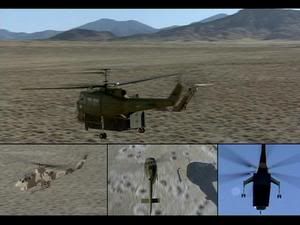
Leterrier, on the other hand, doesn't really seem to want to do much visual experimentation in Incredible Hulk, which is unsurprising because of the movie he makes. For better or worse, it's just another superhero movie. That's not meant to be dismissive. It's a good superhero movie. In fact, I was surprised by how much I liked it. But visually it looks exactly like I expected it to look -- like a slightly Michael-Bay-ish movie that seems to want to say "I could be a car commercial, just longer."
As far as the various actors' performances, it's tough to say in the case of Lee's Hulk. Most of the actors were well cast in their roles, but unfortunately I think the dialogue ruins most of it. You get the feeling that the writers got lost trying to take a story meant for adults -- because of tone, not content -- and rewriting it to be accessible to children. Out of all the actors, the only one I have a strong opinion of either way is Nick Nolte, who makes for one of the most wonderfully twitchy and believable supervillains on film.
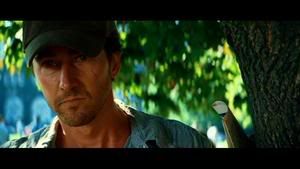
I've been saying for a while that Ed Norton, who built his career playing characters that could be doormats one minute and intimidating macho types the next - most notably in Fight Club and Primal Fear -- would make the perfect Bruce Banner. Unfortunately, Incredible Hulk failed to touch the more emotional side of the character. If you spend the extra dough to get the special edition DVD, you can watch a very brief impromptu therapy session between Bruce Banner and Leonard Samson, but it hardly scratches the surface. We never really see any of the Hulk in Norton and never learn much about his past at all. He still does a good job, but it's such a wasted opportunity. The rest of the cast is fine. Liv Tyler is a far less annoying Betty Ross, William Hurt is an unexpectedly un-William-Hurt-ish General Ross, and if a sequel does see the light of day I wouldn't mind seeing Tim Blake Nelson return (presumably, next time, as The Leader). Tim Roth is okay, but I don't believe his character, mainly for physical reasons. I understand that he's supposed to be an older soldier, and that that's part of why he fixates on the Hulk and harnessing his power for himself, but I just don't buy it. He not only looks too old to be an active special ops guy, but looks far too unshaven to be in the military at all. And it has to be said, while I fully admit that this may be nothing more than the memories of other movies coloring my impression of Incredible Hulk, there's something about Roth's demeanor that says "gangster" or "thug" more than "soldier."
What I have to say about these movies may seem contradictory. It may even seem just plain fanboyish somehow. Overall, I think Incredible Hulk is the better film. But I like Hulk more.
Incredible Hulk is a better film in the sense that it succeeded at being what it was trying to be -- a summer money maker. Leterrier succeeded in taking the Hulk and fitting him into the proper superhero formula. Audiences bought tickets to Hulk and didn't know what the hell they walked into. The movie was too long, there wasn't enough action, and the Hulk took too long to show up. But Leterrier gave us exactly what we've come to expect. We got a lot more action, we got a villain from the comics, a love interest denied because of the hero's heroism, and we even got something not too different from that moment towards the end of most superhero movies when the hero stands astride the rooftops of his city victoriously (except rather than standing astride a gargoyle or a flagpole, he's leap-frogging away from a helicopter spotlight). Incredible Hulk succeeded in being what it was trying to be, but what it was trying to be was something we've already seen again and again.
I like Ang Lee's Hulk more because while it failed to be what it was trying to be, it failed because it was trying to be something more than the next funnybook-inspired popcorn flick.
I can't tell you that I know what Lee was trying to say with Hulk. At the risk of sounding like a wise-ass, I suspect Lee wasn't completely sure himself. When I look closely at Hulk, I see a mishmash of ideas, but nothing that unites it all.
In particular there's a lot going on with nature. We see Banner as a toddler associating his mother with nature as he watches her garden. Later as an adult, he keeps some kind of moss-covered rock by his home computer which Lee makes sure we see him water and care for. When he temporarily escapes the army, the Hulk only stops to ponder Zen-like over strange plants and rocks far from civilization. When Betty Ross first meets Bruce's alter-ego, he is initially hidden when his skin blends in with the shadows of the massive sequoia trunks surrounding her cabin. Along with plants, there's a lot of animal imagery in the film. As early as the opening credits when we see David Banner performing his dangerous genetic experiments, he has a veritable zoo he sacrifices for his science and later when Bruce Banner is hit with the gamma radiation in his lab, the zoo reappears in flashes, suggesting that part of what makes the Hulk who he is has been culled directly from the animal kingdom. In the final scene, as Banner's eyes flash a dangerous green and it's clear he's about to change into the Hulk again, the camera raises to reveal a green parrot perched nearby and a green frog hugging the brim of Banner's hat. As the camera shot takes us to a bird's eye view, the green of the jungle completely swallows the scene.
The suggestion seems to be that Lee's Hulk is meant to somehow be an agent of the Earth or nature, not radically different from how Alan Moore envisioned Swamp Thing; not in the sense that the Hulk is supposed to be able to control nature or that he's an elemental, but that the Earth is his "mother" in a very literal sense. This seems to be supported by Lee making the Hulk a modern version of Hercules. He battles the three hulk dogs just as Hercules battled the three-headed Cerberus, and the climactic battle begins with the Hulk's father absorbing the electricity of San Francisco to become something suspiciously like Zeus (and Zzzax). Just before he turns into Big Daddy Zeus, David Banner screams wildly about his son becoming a hero like those who "walked the Earth long before the pale religions of civilization infected humanity's soul!"
The political relevance of Hulk is potent, though it seems to be something that was overlooked or ignored at the time of its release. The environment has been a hot topic since the '90s, but more than that it needs to be remembered that Hulk was released 2 years after 9/11. It doesn't seem to mean so much now, but consider the immediate Post-9/11 environment. Consider the anger and the fear of the time. Consider why, and then consider a movie about a superhero who spends most of his time fighting the United States military. In the desert. With Arabic music playing the background.
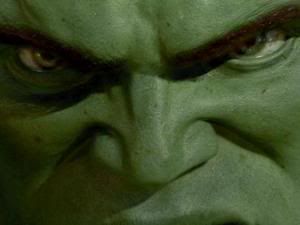 There's a lot of potential here, but none of it seems to go anywhere. There are messages about manhood, and emotional trauma and repression, but it's all a jumble. You get the feeling Lee didn't really know how to turn it into a united, cohesive message but convinced himself otherwise. It's messy and ultimately I just don't know what the hell to make of it. If nothing else, I think it's safe to say Hulk is the most unique superhero film we've seen so far, and I think that's precisely why I like it more than Incredible Hulk, even though of the two Hulk is the lesser film.
There's a lot of potential here, but none of it seems to go anywhere. There are messages about manhood, and emotional trauma and repression, but it's all a jumble. You get the feeling Lee didn't really know how to turn it into a united, cohesive message but convinced himself otherwise. It's messy and ultimately I just don't know what the hell to make of it. If nothing else, I think it's safe to say Hulk is the most unique superhero film we've seen so far, and I think that's precisely why I like it more than Incredible Hulk, even though of the two Hulk is the lesser film. I think we like to use words like "bold" and "risky" and "courageous" for certain artists and their work, but ironically most of us fail to use those words precisely when the artists prove just how bold, risky, and courageous they are by trying something and failing. I think if we only recognize brave artistry when the bravery is rewarded with unquestionable success, then it kind of kills the meaning of the word "brave." And I would like to think if the choice were put to me, rather than opting to succeed at what's easy, I would choose to fail at something great.
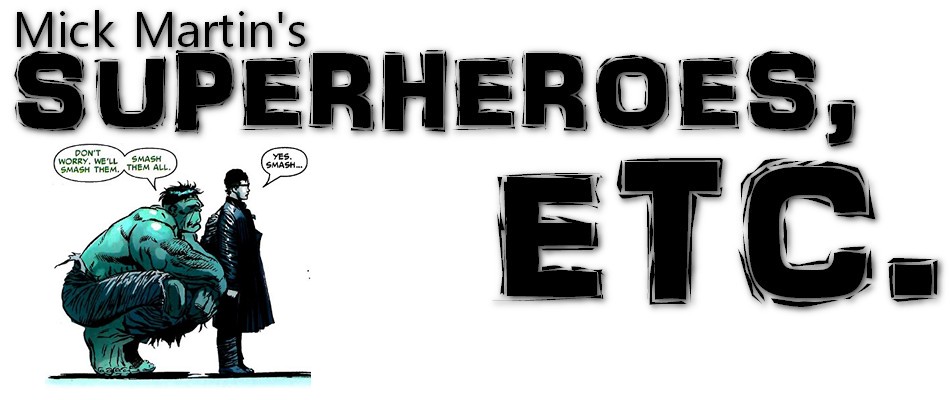
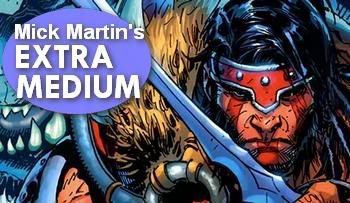
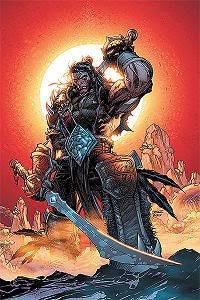 A friend who collects the series loaned me what he had. I managed to get through the first eleven issues before I simply couldn't take it anymore. Simonson's story is rushed and convoluted. The series is, not surprising, pretty action-heavy and that's unfortunate because Ludo Lullabi's action sequences tend to be a little confusing. Lullabi is replaced by Jon Buran in issue #8 and it's an improvement, but honestly not enough of one to keep me reading.
A friend who collects the series loaned me what he had. I managed to get through the first eleven issues before I simply couldn't take it anymore. Simonson's story is rushed and convoluted. The series is, not surprising, pretty action-heavy and that's unfortunate because Ludo Lullabi's action sequences tend to be a little confusing. Lullabi is replaced by Jon Buran in issue #8 and it's an improvement, but honestly not enough of one to keep me reading.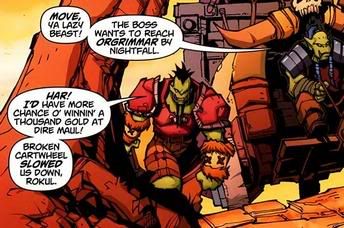
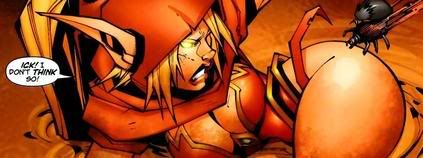
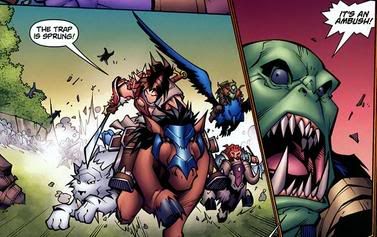
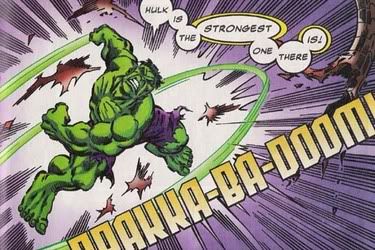
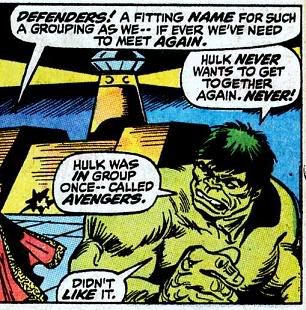
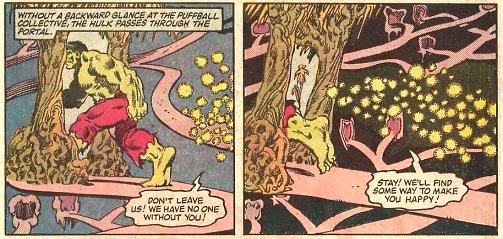
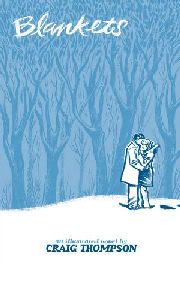 I began by leaving Craig Thompson's Blankets in my bathroom, figuring I'd drag myself through a few pages at a time. I soon ended up bringing it to the bedroom and being unable to leave until I'd reached the end. There was so much about the story that I felt like I should have hated. Anyone who knows my usual tastes would guess that a book with so much space dedicated to a couple of teenagers "being deep" would expect me to have nothing to do with Blankets other than things that involve matches and lighter fluid. I should've hated it, but I didn't. Blankets is sweet and sad and at times horrific, but utterly real and wonderful.
I began by leaving Craig Thompson's Blankets in my bathroom, figuring I'd drag myself through a few pages at a time. I soon ended up bringing it to the bedroom and being unable to leave until I'd reached the end. There was so much about the story that I felt like I should have hated. Anyone who knows my usual tastes would guess that a book with so much space dedicated to a couple of teenagers "being deep" would expect me to have nothing to do with Blankets other than things that involve matches and lighter fluid. I should've hated it, but I didn't. Blankets is sweet and sad and at times horrific, but utterly real and wonderful. 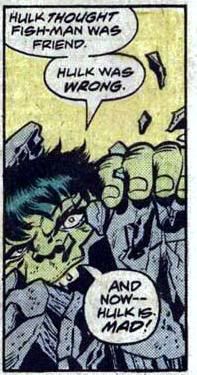
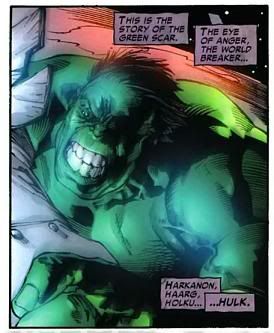
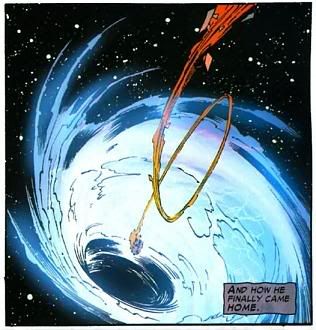
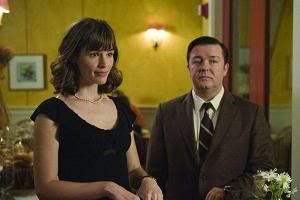 Just got back from The Invention of Lying. Ricky Gervais plays Mark Bellison - the only man capable of being dishonest in a world where everyone tells the absolute, blunt truth. It's reminiscent of Life of Brian not only because the lead is an Englishman, but because like Graham Chapman's hapless character in the earlier film, Bellison accidentally starts a religion. In fact, he does Brian one better. He creates the very concept of religion. He eventually reaps all the worldly benefits one would expect one could receive in such a position, except for what he wants most - the love of Anna McDoogles (Jennifer Garner).
Just got back from The Invention of Lying. Ricky Gervais plays Mark Bellison - the only man capable of being dishonest in a world where everyone tells the absolute, blunt truth. It's reminiscent of Life of Brian not only because the lead is an Englishman, but because like Graham Chapman's hapless character in the earlier film, Bellison accidentally starts a religion. In fact, he does Brian one better. He creates the very concept of religion. He eventually reaps all the worldly benefits one would expect one could receive in such a position, except for what he wants most - the love of Anna McDoogles (Jennifer Garner).